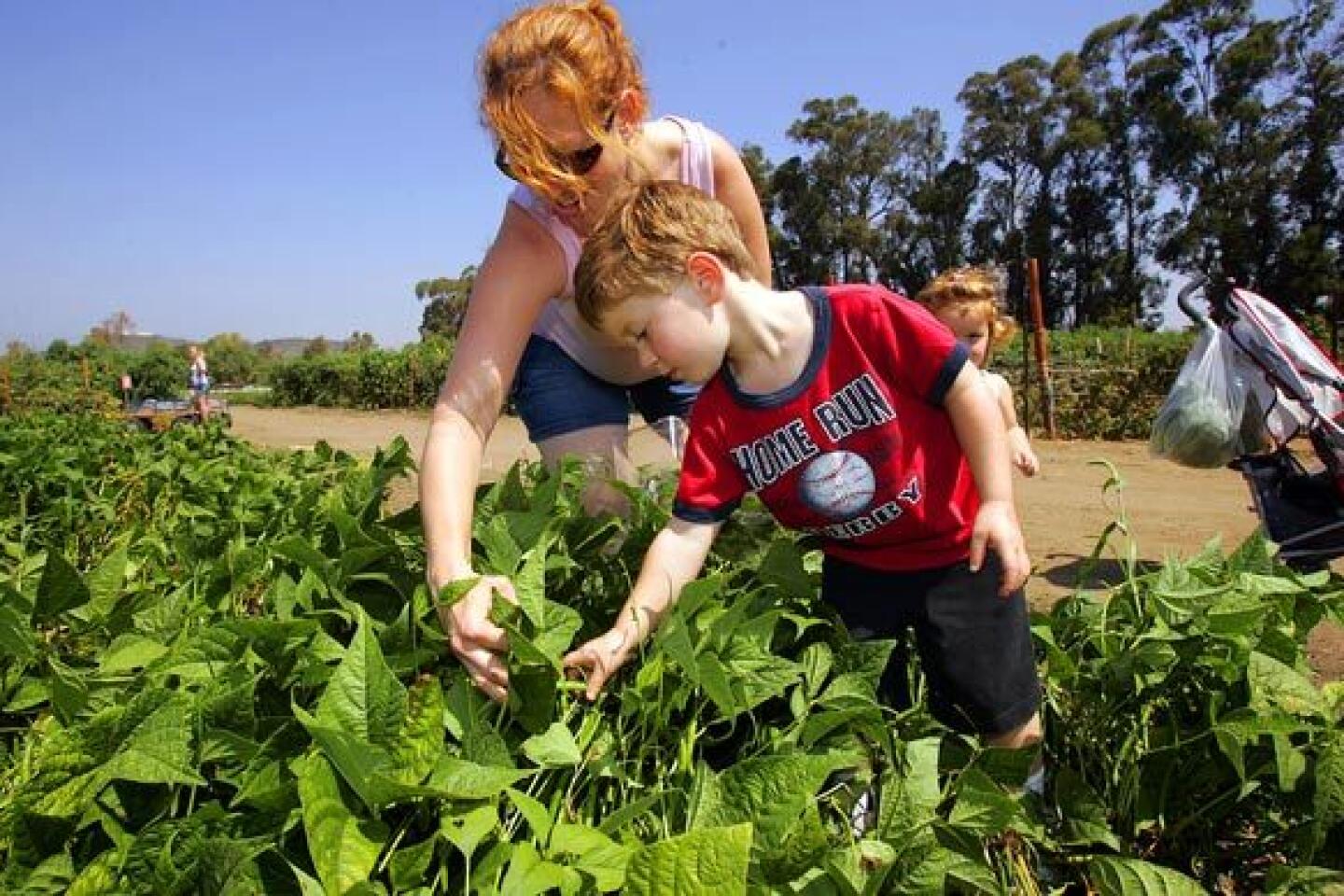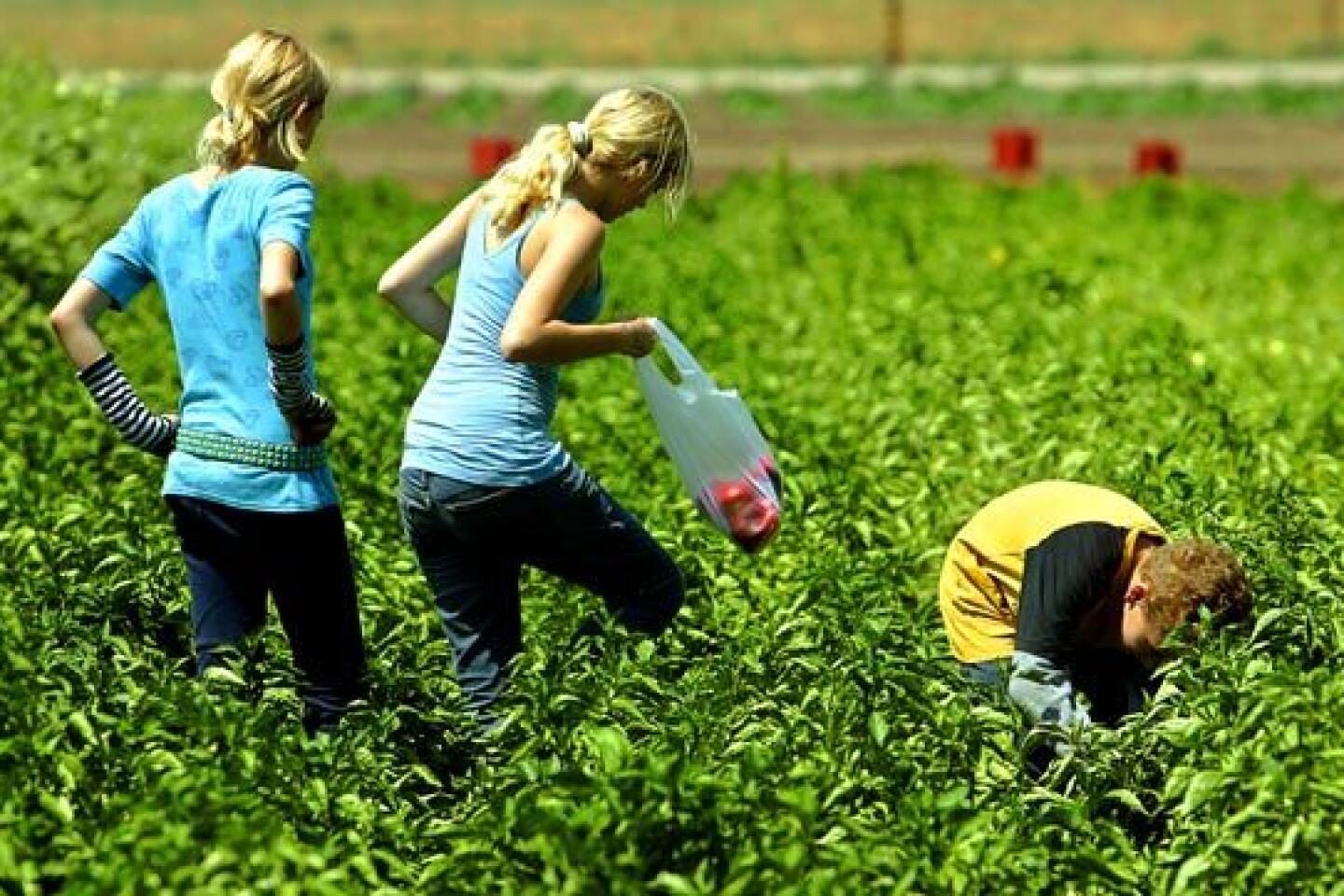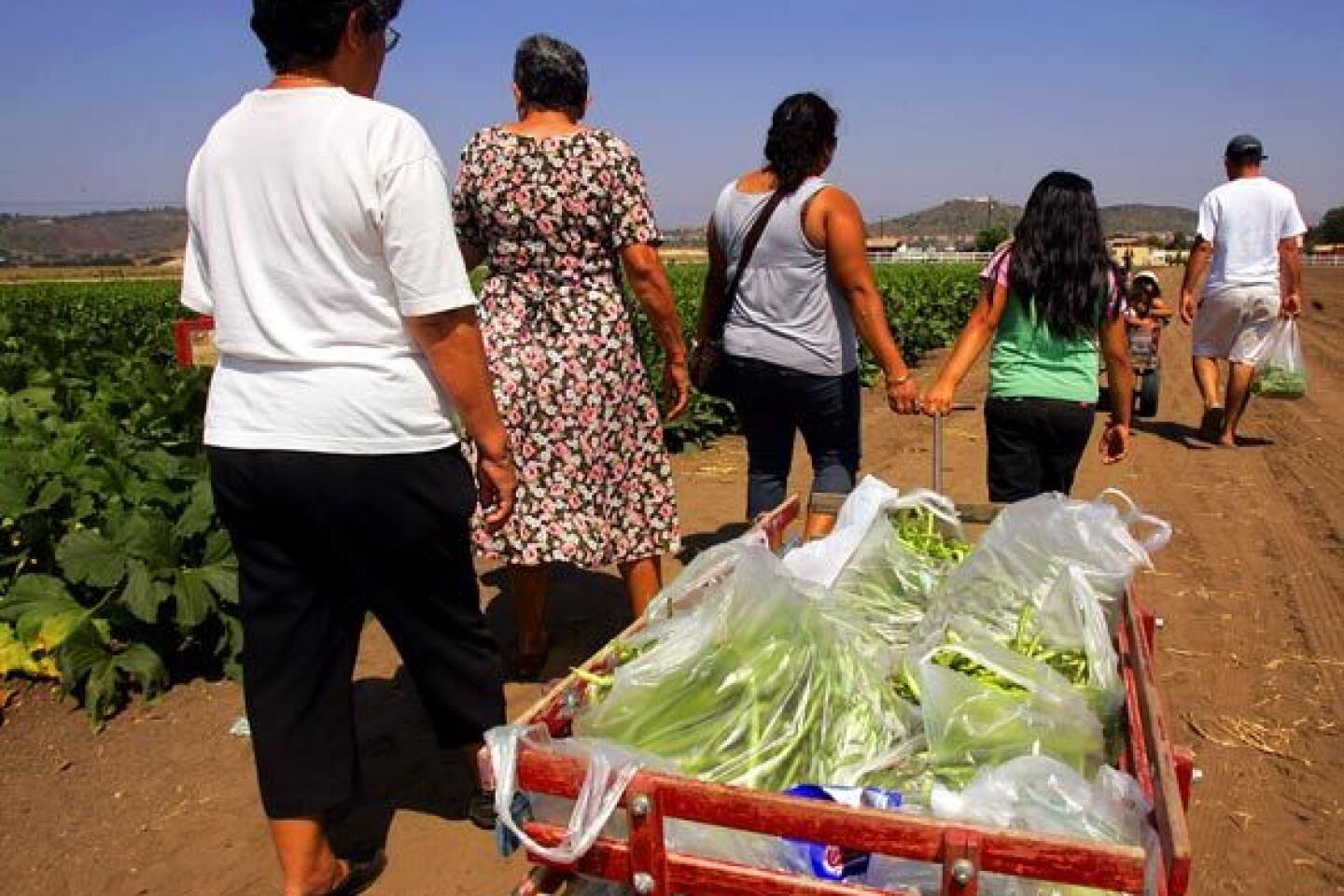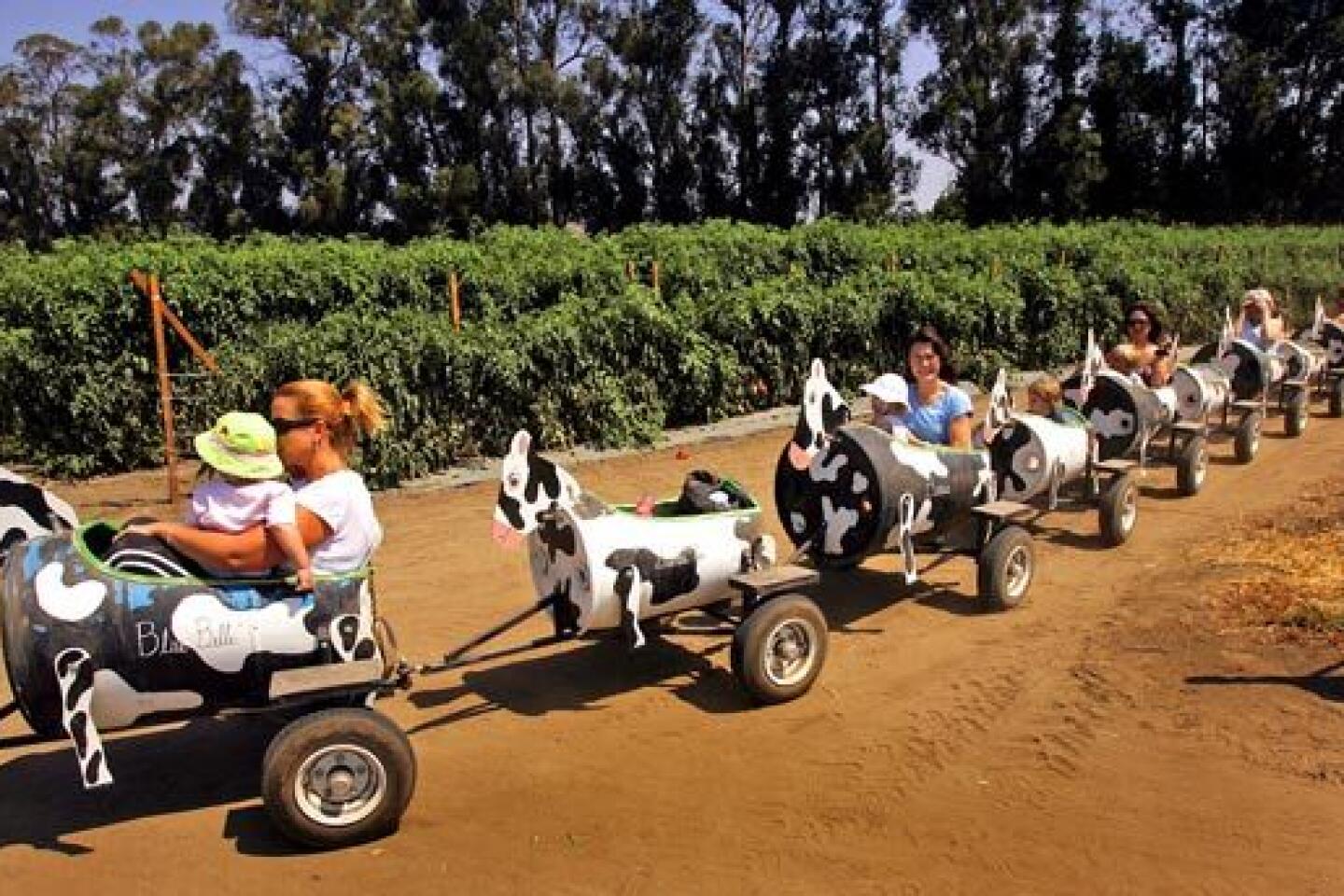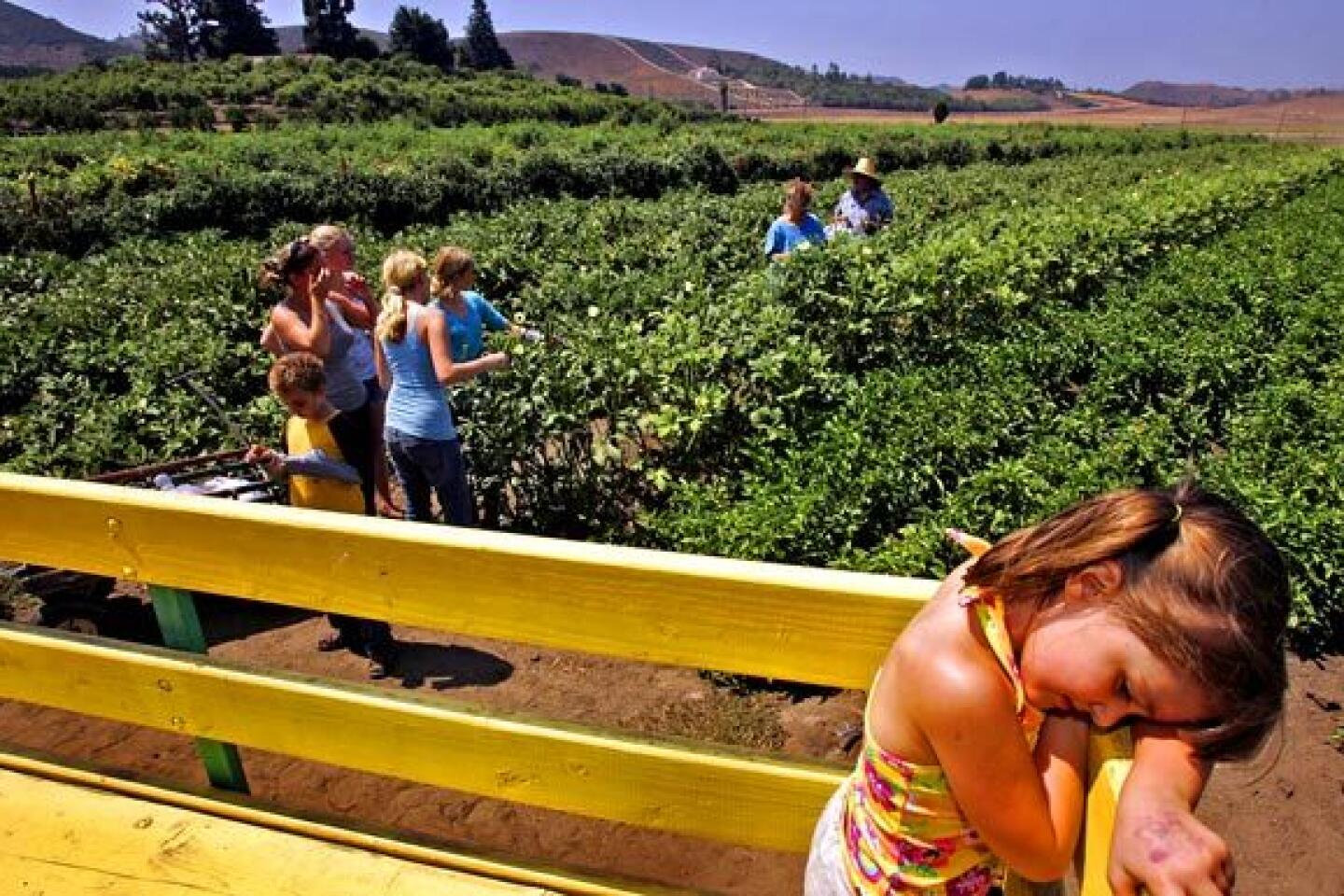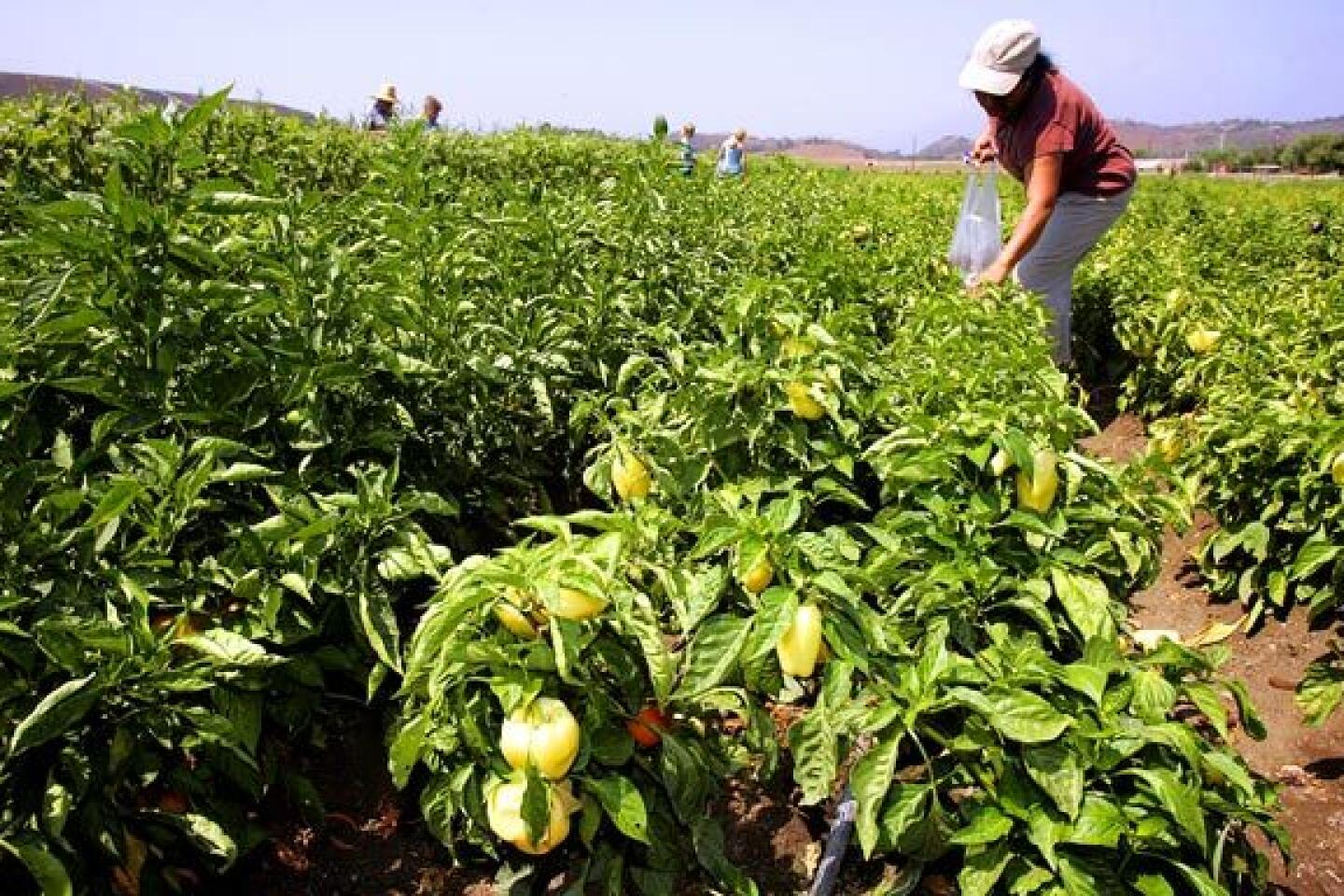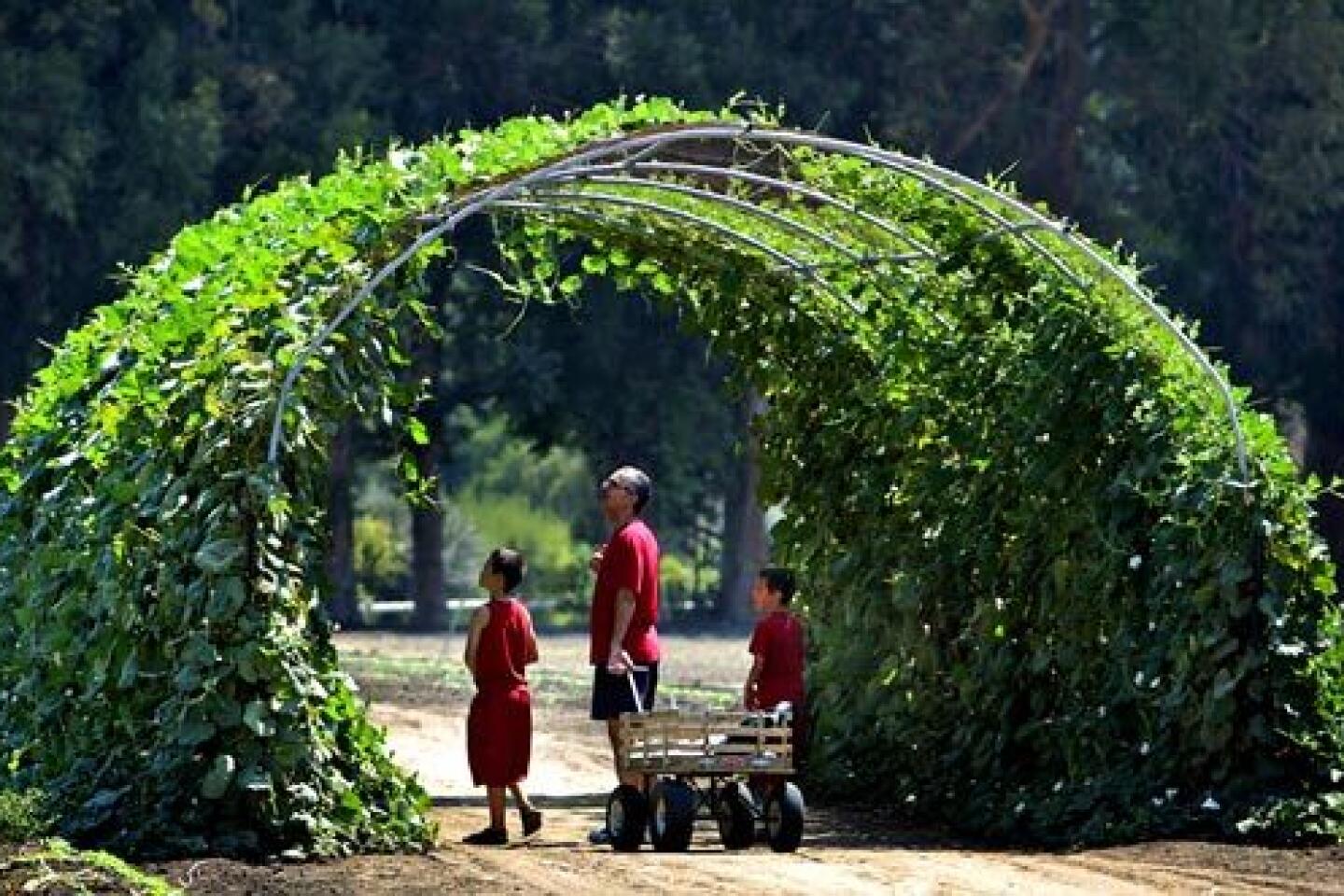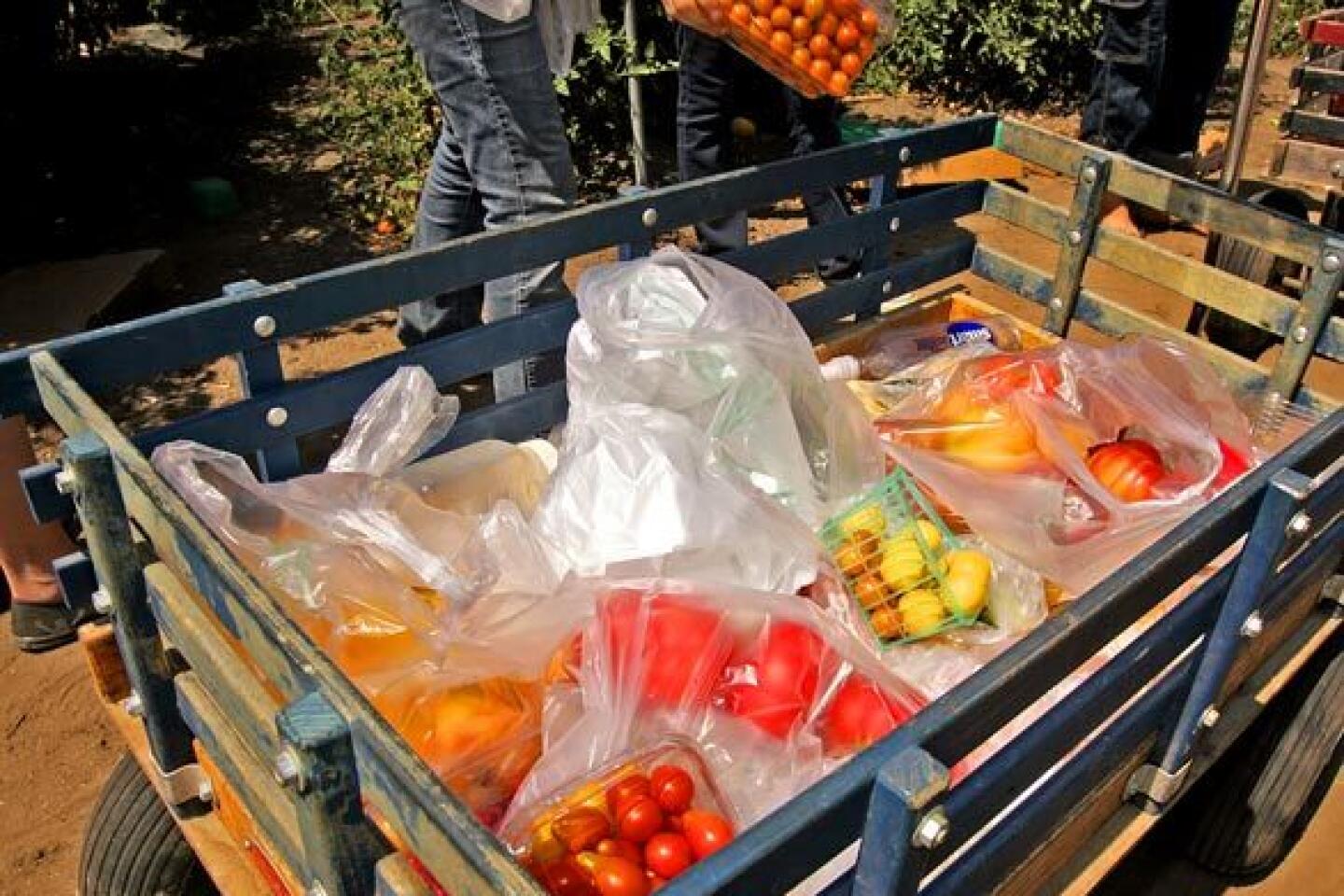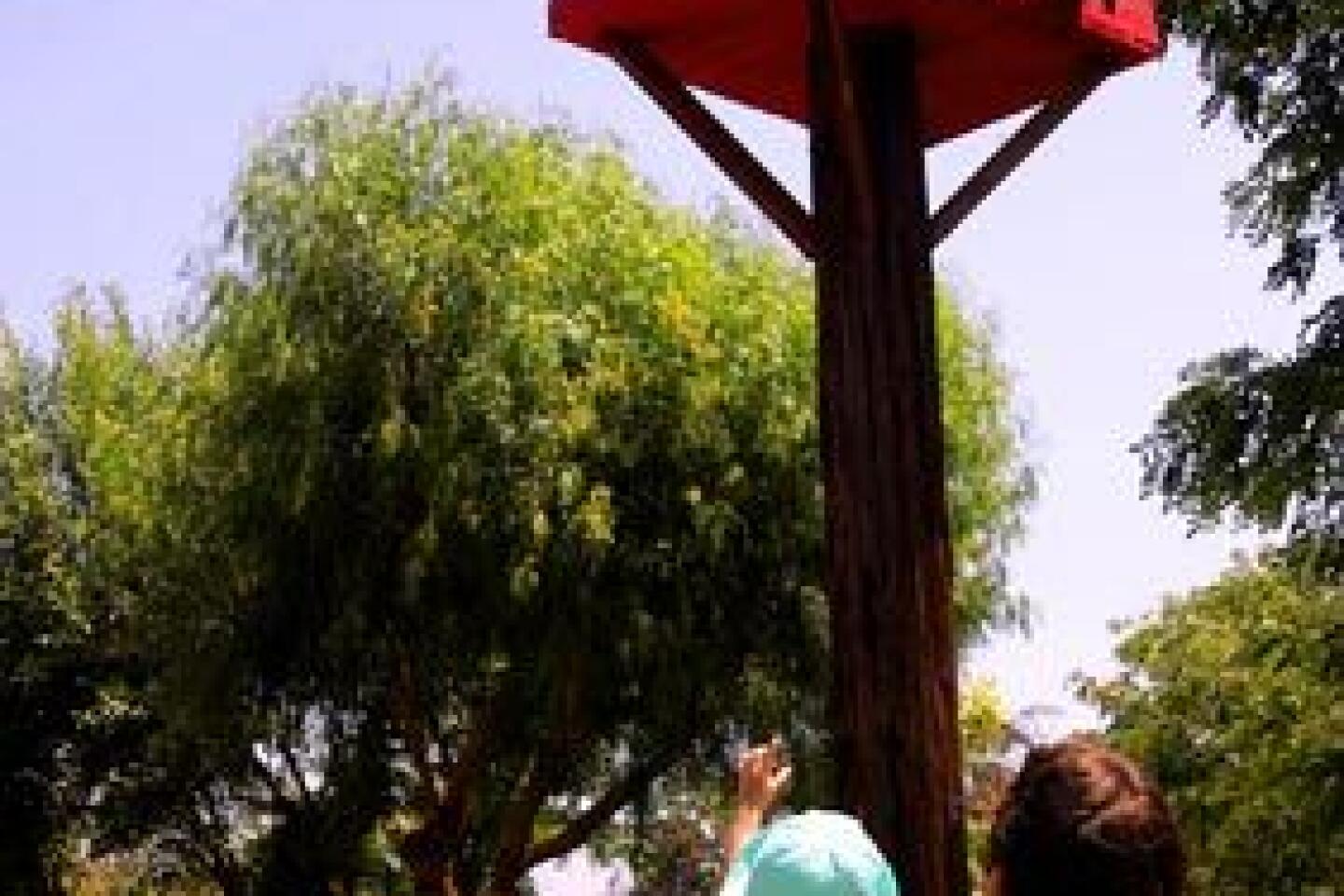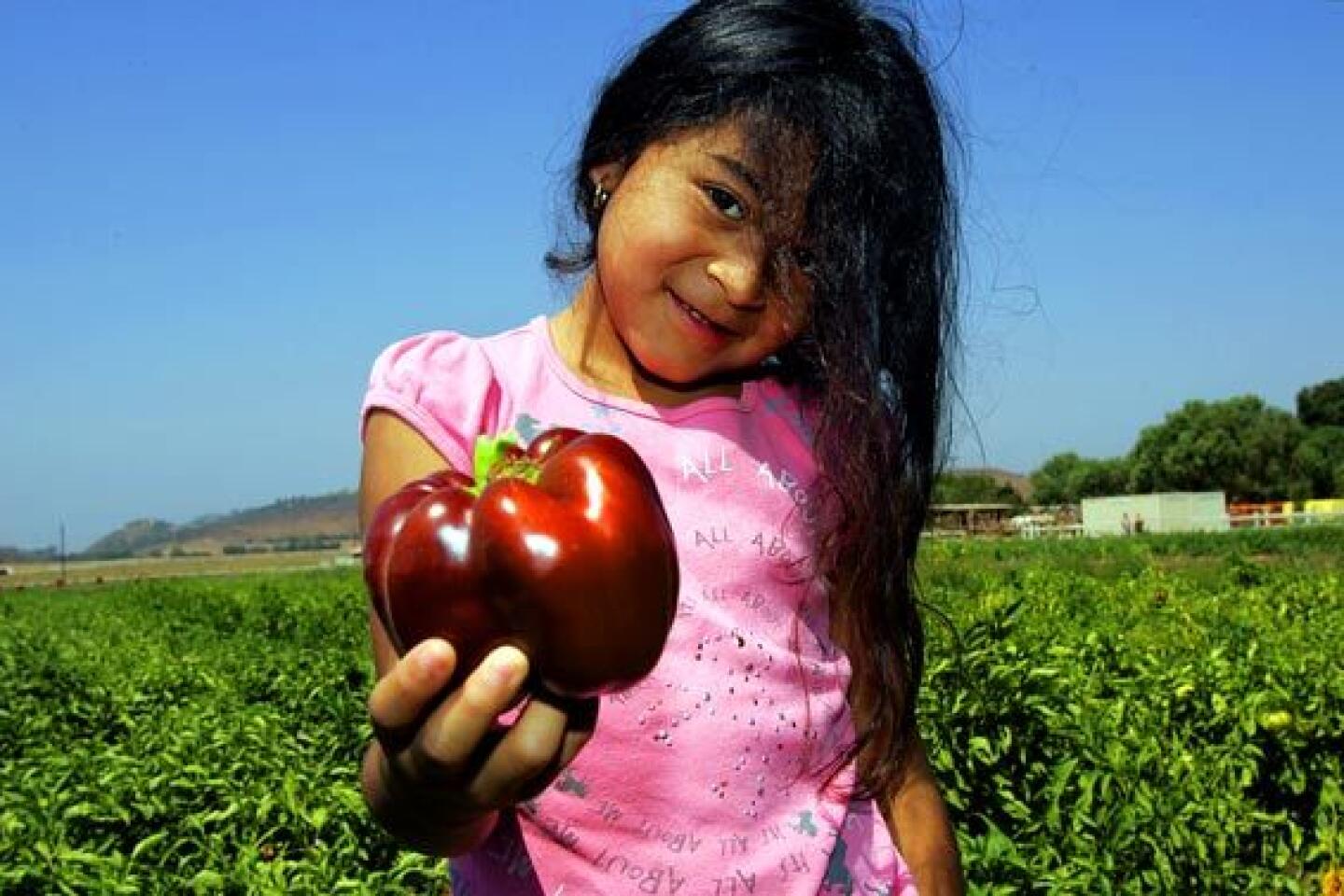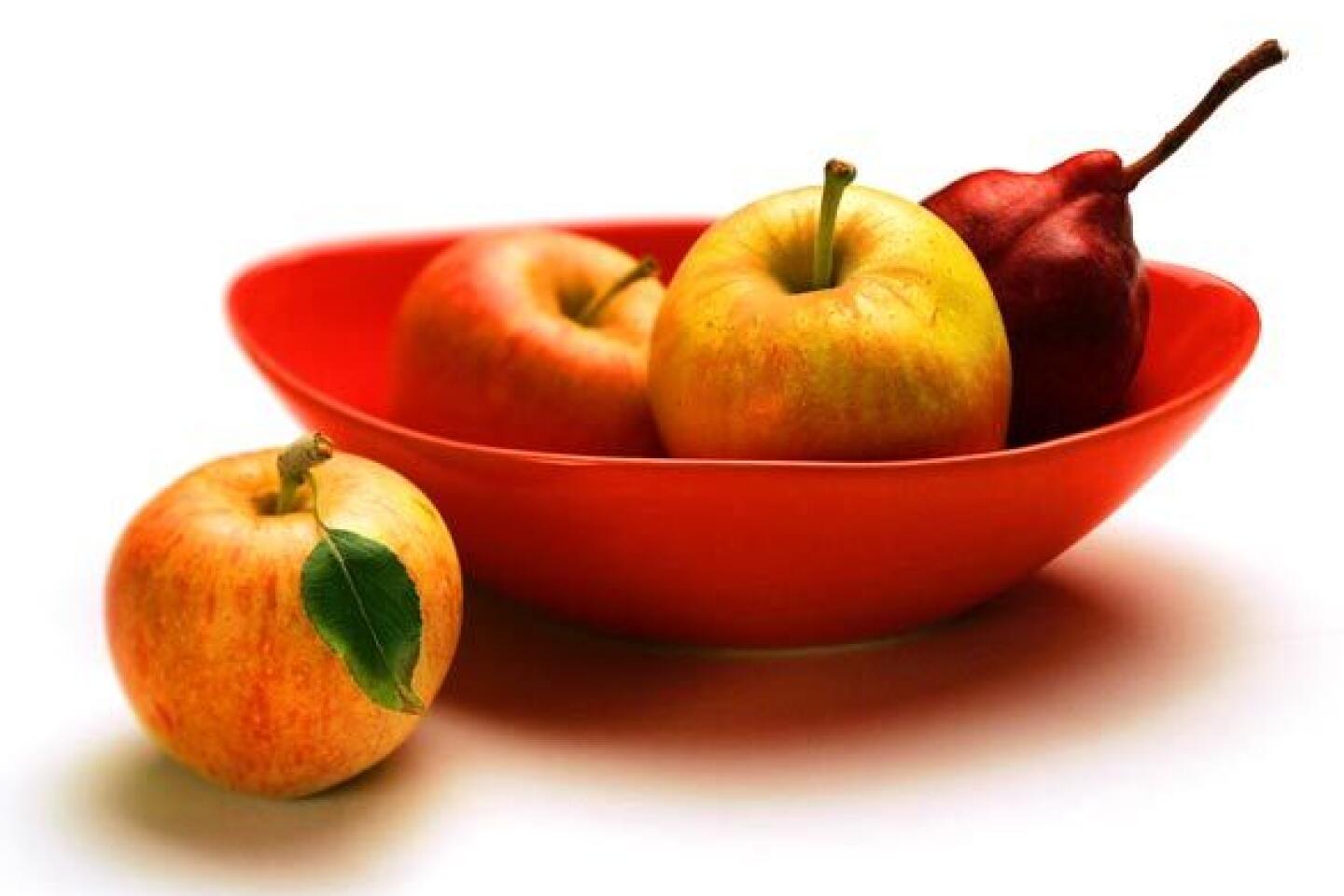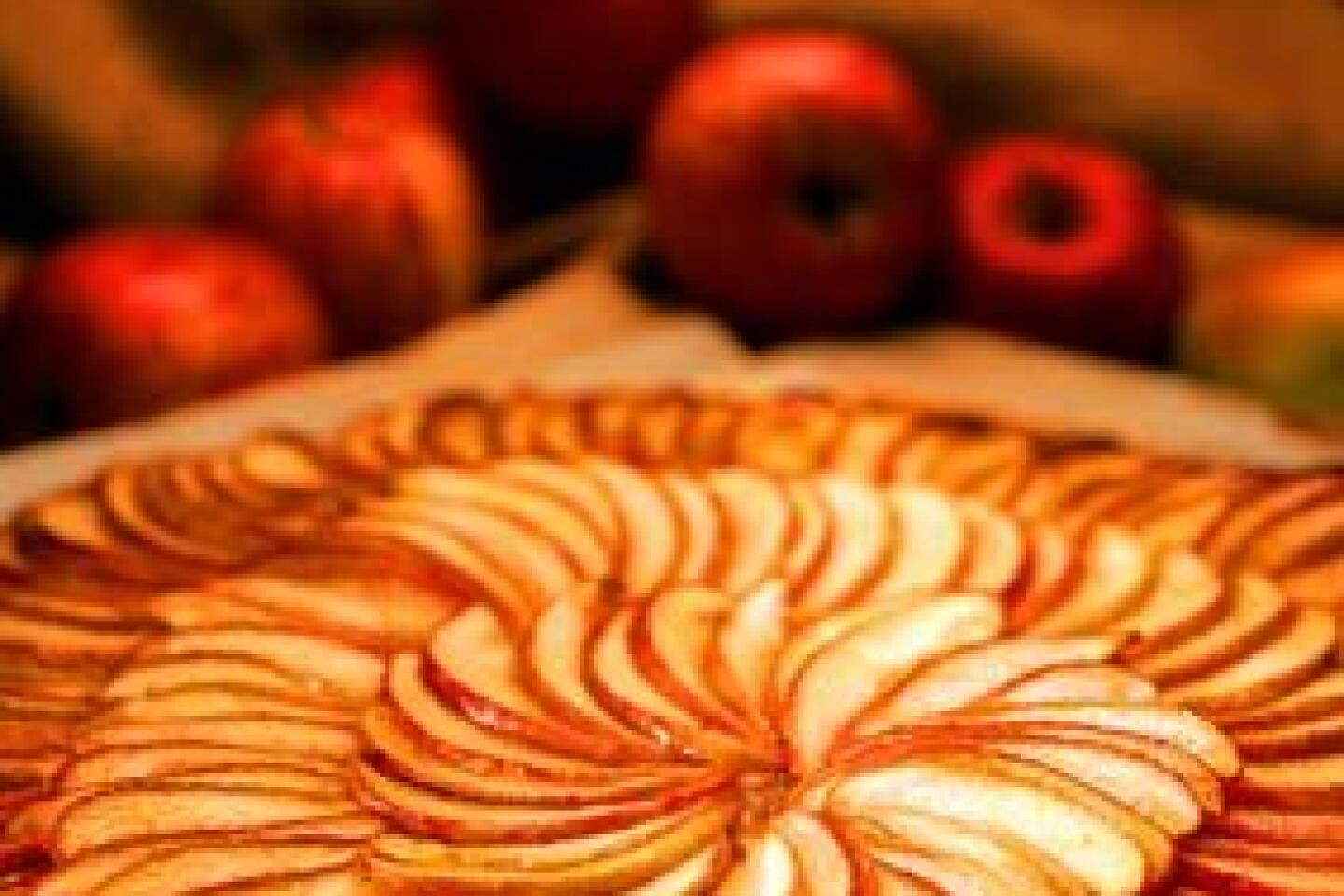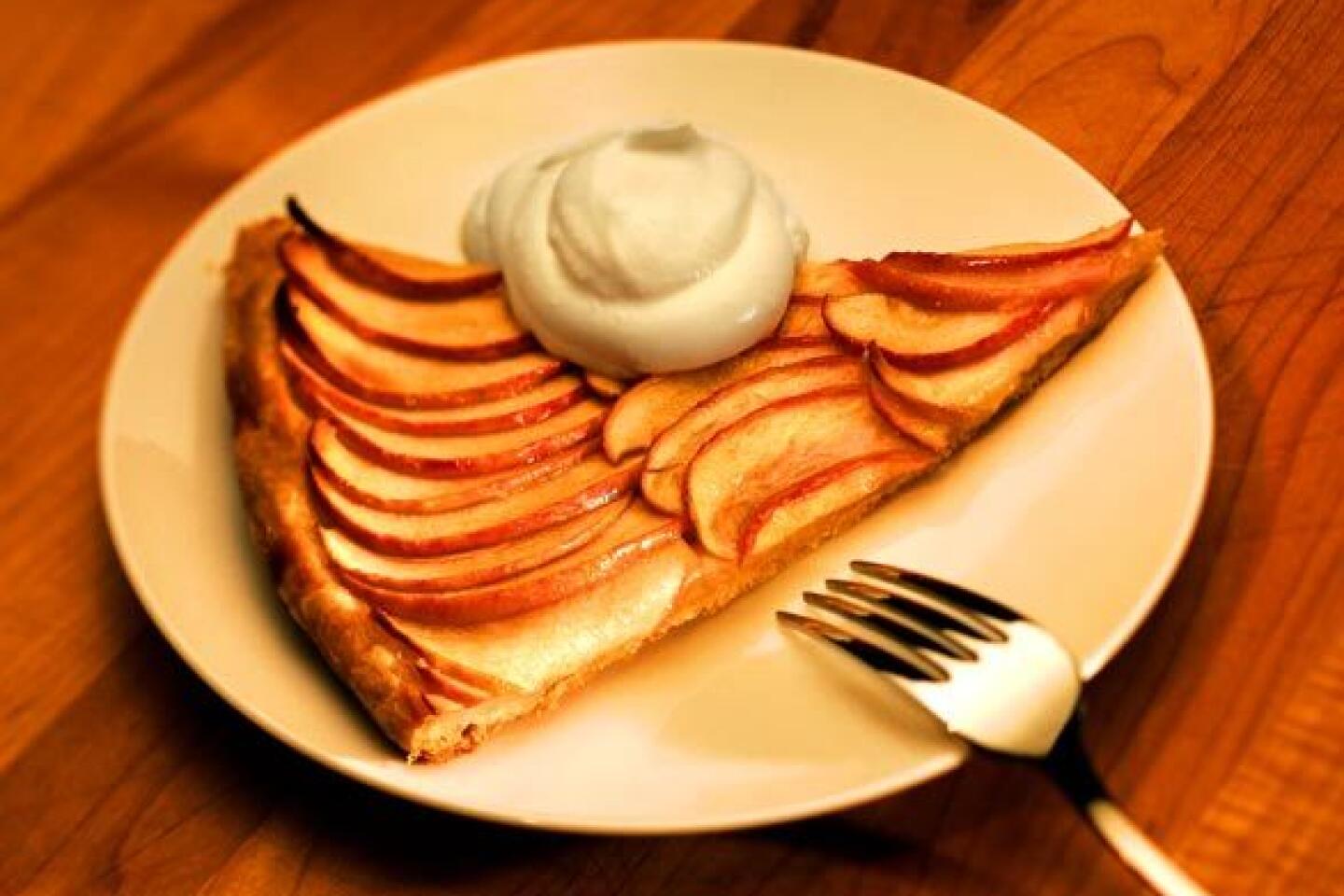Ripe time for Southern California’s pick-your-own farms
- Share via
ON A recent Sunday, a friend and I watched as our kids pulled a wooden wagon through a Ventura County field, pausing to gather black-eyed peas and sun-ripened heirloom tomatoes. They ran down rows of raspberry bushes, filling their hats with the ripe fruit. The air rustled the leaves of a row of peach trees; bees hummed on the periphery. Two hours later, the contents of our wagon (weighed out and paid for at the market stand) held enough produce for dinner, for dinners all week. The kids, faces browned by dirt and sunlight, were eating tomatoes as if they were apples; they didn’t want to leave.
If this sounds like your idea of fun, heading out to a U-pick (also called pick-your-own) farm might just be the perfect way to spend a weekend morning. And a fantastic way to get some of the freshest and tastiest produce you’re likely to find.
FOR THE RECORD:
U-pick farms: A Wednesday Food section article about U-pick farms stated that Moorpark, the home of Underwood Family Farms, is northeast of Encino. Moorpark is northwest of Encino. —
There are U-pick farms throughout Southern California -- working farms like this one in Ventura County, apple orchards halfway to Palm Springs, unlikely Irvine-area watermelon fields -- and these transitional weeks, as summer leans into fall, are the perfect time to explore them.
Right now you’ll find a last burst of raspberries, ripe tomatoes and pears and the season’s first fragrant apples. In another month, pumpkins will be ready. So gather your boxes, find your sun hats and walking shoes, and head out to the farm.
Just 30 miles northeast of Encino in Ventura County, Underwood Family Farms, a familiar name from L.A.-area farmers markets, operates two U-pick farms. The main location, in Moorpark, is a 160-acre working farm with plenty of U-pick fields, a large produce stand (you needn’t pick your own), a petting zoo for kids and a just-planted corn maze.
Visitors can pick up a wooden cart, as we did, to pull down the dirt paths between rows of peas, squat peppers, and lettuces like emerald bouquets. Signs indicate the names of the plants, price per pound and whether they’re ready for picking.
Craig Underwood, who owns or leases the land at the Moorpark farm and a second 10-acre farm in nearby Somis, says he’s seen his U-pick farms, as well as those of his colleagues in the business, increase in popularity recently.
“I think it’s picked up in the last couple years; we’re seeing more people come out. People are finding it more important to buy local and eat fresh.”
Underwood grows for a combination of U-pick, farmers markets (he goes to 12), and the produce stands he runs at each farm. School tours during the week and festivals each October have helped turn the U-pick into a profitable operation.
Northeast of Los Angeles, in the high desert on the other side of the San Gabriel Mountains, is a region that a century ago was so filled with pear trees that the main drag is called Pearblossom Highway. Here, the U-pick farms are more far-flung and windblown, less suited to school tours than to pilgrimage.
“We get cold in the winter, the nighttime temperatures drop into the 20s, sometimes lower; it’s the right climate for pears,” according to Nancy Yingst, who says that in recent years farmers have replaced many of the pear trees that fell prey to disease and drought, with faster-growing peach trees.
The Yingst family has farmed in the Antelope Valley on land right off Pearblossom Highway for 23 years. Their fruit trees have been U-pick for “almost the whole time,” Yingst says. “Years ago people used to come and pick large volumes for canning.”
These days, with rising gas prices, Yingst says that “folks are coming less frequently, but they’re picking more.”
Yingst Ranch is primarily a U-pick operation, though it sells picked fruit (at a slightly higher price per pound than the U-pick) and the Yingsts sell at four farmers markets.
By Labor Day, the farm has gone through its apricot, plum and most of its peach season (Rio Osa Gems are still on the trees), but Bartlett pears and Red and Golden Delicious apples are just hitting their stride.
With her two dogs gamboling around her on the slightly overgrown paths between the rows of trees, Yingst leads a couple of women (they know the routine and have loaded one of the farm’s small wooden wagons with baskets they’ve brought) to the trees with the ripest fruit. Low branches on those trees are tagged with plastic ribbons.
One of the visitors, Liliana Tortell, who has been coming to this farm for close to a decade, says she “can’t buy the ones in the market,” because she thinks they’re tasteless. As she waited for Yingst to weigh the peaches she’d selected, Tortell said she planned to make a pie with some of the fruit, and to simply cook down the rest with butter and sugar.
Further down Pearblossom Highway, past lonely Joshua trees and handmade signs for honey and jerky and sail-plane rides, down a mile-long, coyote-tracked dirt road, is Brian Ranch Airport, a U-pick farm so vast and horizontal that it looks more like an airstrip than an orchard. In fact, it’s both.
Six hundred fruit trees fill five of Jack Brian and Felice Apodaca’s 40 acres. As you walk through the trees -- Shinko and Kikusi Asian pears, Flavortop nectarines, Braeburn and Red Fuji and Royal Gala apples, Rosi-Red and Bronze Beauty pears -- you can see the hangar where Brian, a former aerospace engineer, keeps his Rans S-12 and Piper Arrow planes. Nearby, a tiny cold-storage hut houses the picked fruit that the couple will sell at the South Pasadena farmers market and take to the Antelope Valley Fair.
Apodaca, who is from Los Angeles, says her British husband always wanted to own an airport. The land they bought in 1978 with that in mind was zoned for agriculture, so they decided to plant fruit trees.
Tasty destinations
BUSINESS IS good lately, Apodaca says, thanks to the ease of “getting the word out” on the Internet. Families come up from the city, and the ranch also gets business from recreational pilots, who fly in for an afternoon of fruit picking.
“They’re always looking for a destination as an excuse,” Apodaca says. “You’ve heard of the $200 hamburger? We’re the $50 peach.” (The farm charges 95 cents a pound for peaches and all its other fruit.)
Another center of U-pick activity is in San Bernardino County, where the apple ranches of Oak Glen -- an area of rolling foothills east of Yucaipa, cool enough for winter snows and prime apple growing -- are like a bucolic oasis after a string of scrubby outposts. Tiny ski rental shacks and dry-docked boats (Lake Arrowhead is only about 40 miles north) yield to green hills and orchards heavy with Honeycrisps and Empires, Pink Ladys and Arkansas Blacks.
Oak Glen is as much an apple theme park as a collection of farms and ranches. Gift shops, restaurants, conference centers and art galleries line the main drag of Oak Glen Road. Picking apples here has been elevated to performance art.
At Riley’s Apple Farm (many of the businesses up here are run by the Riley family, who originally brought the U-pick idea to Oak Glen), there are blackberries and raspberries for picking in late summer. Then pears and, after Labor Day, the official start of apple season up here, U-pick apples.
After a meandering drive up Oak Glen Road, you park in a dirt-and-grass lot near the orchards. But the Rileys who run this farm do more than hand you a bucket: The gift shop is operated by women in pioneer garb; there are archery and tomahawk- and knife-throwing demonstrations.
Down the road, Riley’s at Los Rios Rancho (run by Devon and Shelli Riley, a different branch of the extended Riley clan) also starts off its U-pick schedule with raspberries before segueing into apples, then pumpkins, then chestnuts in late fall.
After a morning spent among the orchards, take a bag of freshly picked Galas -- or a 5-pound apple pie from the farm’s bakery -- and explore the trails of the Wildlands Conservancy, which has its headquarters at Los Rios Rancho.
The Conservancy owns the orchards and leases the land to the Rileys at Los Rios; depending on the seasons, the trail you walk might pass through the very orchard where you picked your apples.
Los Rios Rancho grows 28 varieties of apples, including Gravensteins, Rome Beauties, Starkey Delicious and the gorgeous Arkansas Blacks -- stunning crisp, hard-textured apples that look more like orbs carved out of dark mahogany than fruit.
All the apple varieties are available for picking, though orchards will mature and be ready at different times.
All in the family
DOWN THE hill from the Riley farms at the end of a little side road called Raspberry Lane is the smaller Snow-Line Orchard. The Hudson family, which owns and operates the farm, doesn’t offer U-pick apples; instead, there are raspberries (both red and golden) to pick in the field above the farm’s shop. In the shop you can buy cider made on the premises and some of the 34 varieties of apples the Hudsons grow in nearby Cherry Valley. And starting Labor Day, Snow-Line makes cider doughnuts seven days a week.
“We’ve got people who’ve been coming here for generations; [the farm] is 110 years old,” Linda Hudson says.
Hudson says that visitors come from San Diego, Ventura County and Los Angeles, even from Las Vegas. “People like U-pick because it’s an activity for the family, or it’s a tradition. [The way] I look at it,” says Hudson as she pauses to direct a group of local kids on a scavenger hunt near the raspberry bushes, “it’s work.”
Work, of course, is a relative concept. Picking Gravensteins or Galas from a low-hung branch, pausing amid the long grass and sage to bite into a crisp Braeburn or a Bartlett pear, then filling a basket with fruit that you’ve gathered yourself may not seem like work at all.
Watching the kids run down the fields at Underwood farm last Sunday, calling out to see who could find the biggest eggplant, it seemed a lot more like play.
More to Read
Sign up for Essential California
The most important California stories and recommendations in your inbox every morning.
You may occasionally receive promotional content from the Los Angeles Times.
